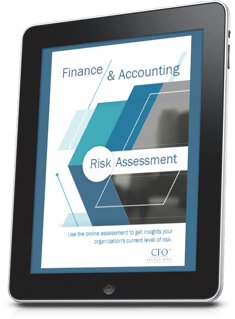
Business owners find due diligence daunting because of the cost and time required to do it effectively. They worry that the conversation with potential clients will be awkward to initiate and the process difficult to execute, lengthening the buying cycle. Furthermore, they fret about the risk of losing prospects from their sales pipelines, reducing overall conversion rates. However, the benefits far outweigh the risks of doing due diligence.
|
What is Due Diligence? Due diligence is an investigation or audit of a potential investment, product or client to confirm all facts, that might include the review of financial records. Due diligence refers to the research done before entering into an agreement or a financial transaction with another party. Due diligence is performed before buying a security from a company. Due diligence can also refer to the investigation a seller performs on a buyer that might include whether the buyer has adequate resources to complete the purchase. |
Increased profitability is the most salient benefit to doing due diligence. Attracting a credible and financially capable client base reduces the time and resources needed to handle escalations, pursue collections, and resolve payment disputes. Other due diligence benefits include:
- Improved client relationships.
- A healthier business culture.
- Legal protections.
- Preserved brand identity.
Contrary to popular belief, due diligence is not simply about precluding financially risky clients from business deals. Due diligence includes a breadth of investigative work that aims to understand a prospective client’s motives, trustworthiness, operational framework, and ability to pay to engage in healthier business relationships.
Goals
The foundation of due diligence should be an alignment of goals.
Determining if prospective clients are good businesspeople or pay their bills in a timely manner is futile if they want something that the business cannot (or does not want to) offer. Understanding what potential clients are looking to gain from the business relationship must be the first step in conducting due diligence.
Every customer-facing business professional has experienced a situation in which it was clear that a client never should have been brought on board in the first place. In these cases, nothing that the business says or does is enough to appease the client because there is a fundamental mismatch in what the client is seeking and what the business is offering. No amount of conceding or attempting to manage expectations is successful because the client and the business both feel as if they are being required to compromise more than they should. The result is diminished efficiency, a poor customer experience, reduced employee morale, and lost profits. It is a lose-lose scenario.
Start the due diligence process with a conversation that explores a prospective client’s:
- Needs and desires
- Experience level
- Most important metrics (KPIs)
- Short-term and long-term goals
- Definition of success
- Expectations for the business relationship
This kind of discussion not only kickstarts the due diligence process, but also serves as a crucial sales strategy starting point, making it a comprehensive, company-wide best practice. If the result of this conversation indicates a match, more traditional due diligence procedures should subsequently be pursued.
Financial Stability
Determining a prospective client’s financial stability requires verifying contact information before running a credit check, criminal background check, or other formal records retrieval. The goal is to predict a client’s ability to pay to protect the business from lost revenue and other negative financial consequences, not to judge or vilify a prospect. In some instances, potential clients must simply be notified of this practice, and in other cases, written consent must be obtained before the process begins. Once information is obtained, there are strict guidelines on how that information can be used, shared, and stored. Before doing financial due diligence on customers, understand the requirements that are specific to your region to avoid potential fines and penalties.
Many business owners dread discussing financial surefootedness while negotiating new deals, because they worry it will scare off prospective clients and fear backlash. However, being fully transparent is always the best practice. Failing to disclose due diligence practices or burying them in incomprehensible terms and conditions is a surefire way to create animosity and distrust with potential clients, which can quickly stymie any business deal.
Honestly broaching the topic of financial due diligence creates an environment of respect, making prospects more likely to provide necessary information and accept the subsequent outcomes. If a negative outcome like denial of service results, being upfront and truthful with the potential client preserves the relationship, providing incentive for that client to return in the future if financial circumstances improve.
Credibility
Determining credibility is another crucial component of performing due diligence. Understanding a business client’s values and ethics speaks to the company’s trustworthiness. Use publicly available online information to assess how they treat their business partners, colleagues, and customers. Figure out if they are committed to providing superior customer service and how their brand is perceived. Aim to understand the root cause of any problems or friction referenced online. Negative customer reviews, Better Business Bureau complaints, concerns voiced by former employees, and disparaging online forum discussions can be the smoke that signals fire.
While this is a far more subjective assessment than a financial review, it is equally important. Unearthing information about questionable business practices or unsatisfied customers can hint at more serious ethical issues. If a client is engaging in illegal or unethical activity, this type of investigation can protect the business by resulting in a refusal to engage in business from the start. Additionally, it may be admissible in court if legal action is threatened after a business relationship begins.
Work Ethic
If it is possible to speak with a potential client’s business partners, vendors, suppliers, employees, or key stakeholders, ask for information about timeliness and other integrity indicators. Try to find out if the prospect respects work deadlines, pays bills on time, and communicates effectively. Aim to understand their company culture, views on transparency, and anything else that indicates a strong work ethic. Prospective clients that take pride in the work that they do and put their customers first are likely going to be more amiable to work with because they do not want to do anything to threaten their own brand image.
A hybrid strategy for due diligence can eliminate the hassle of performing due diligence on all clients, while still protecting the business. Creating criteria under which due diligence must be performed allows business owners to filter prospective clients that are inherently less risky while still having the formal measures in place to evaluate potential clients that could do serious financial damage to the business. For example, smaller accounts may not require the same level of scrutiny as larger deals or leads referred by trusted clients may only prompt a lighter version of typical due diligence procedures.
Remember, the result of due diligence measures does not need to be a simple pass/fail determination for a potential client. Instead, risk level can be categorized into narrower bands that determine payment terms, financing eligibility, and even pricing. Taking a tiered approach to due diligence allows a company to analyze potential risk and respond in a way that makes doing business with riskier clients worth the added risk to the organization. This response can be increased prices on offerings, a shorter payment timeframe (NET 15 or NET30 instead of NET60 or NET90 payment terms), a legally binding service contract to lock in business over a longer timeframe, steep late fees, or higher interest rates on financing.
 A financial risk assessment can make all the difference for your business. Preparing to take advantage of opportunities and eliminate potential landmines makes good business sense.
A financial risk assessment can make all the difference for your business. Preparing to take advantage of opportunities and eliminate potential landmines makes good business sense.
Get instant access to our free finance and accounting risk assessment!
Contact CFO Selections® now with any questions about our services.





